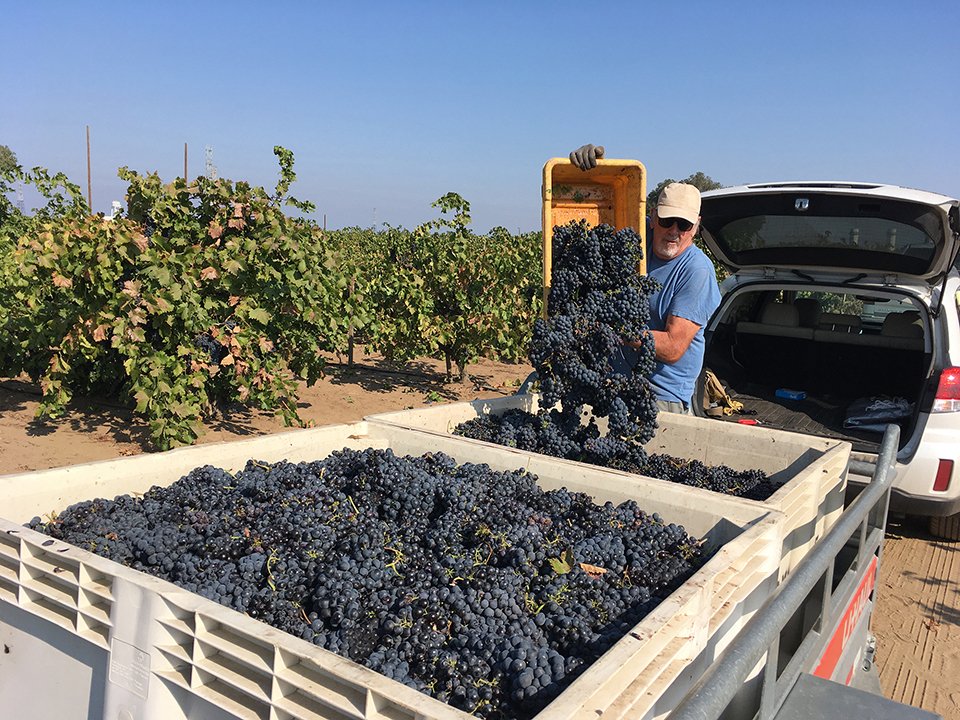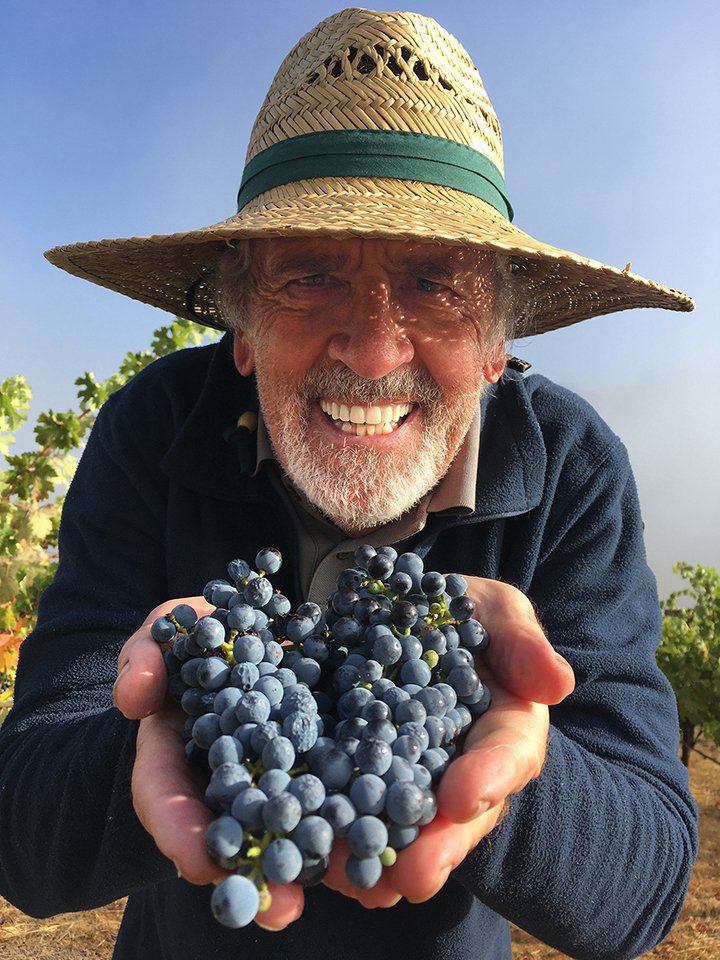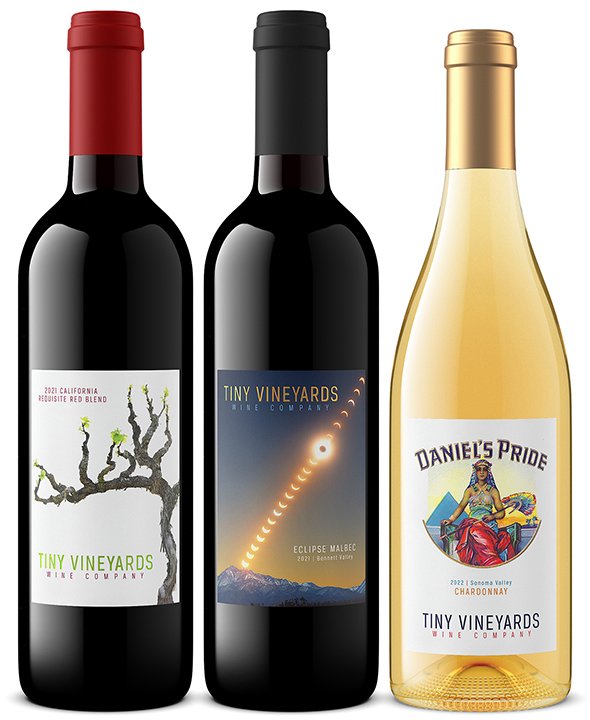Tiny Vineyards Wine Co.
Get the Dirt from winemaker Joseph Daniel
“Exceptional wines only come from exceptional grapes, and the best are found in small, often private vineyards that have been lovingly tended by hand using natural, sustainable methods.”
What was your first vintage year?
I’ve been making wine as a home winemaker since 2018. My first commercial vintage was 2021.
How many cases do you make per vintage? 300-500
Do you have a Tasting Room? I don’t have a tasting room but if someone is really interested, I can arrange a private barrel tasting and bottle sampling at the winery (by appointment only).
What wine made you want to become a winemaker/start your own winery?
As a wine, it would have to be a classic Zinfandel-based California Red Blend, It made me want to make wines that I really wanted to drink on a daily basis. As a grape, it would be Malbec. I’ve spent a lot of time in Argentina and really fell in love with Malbec.
What varietals do you work with?
I work with a lot of grapes for both blends and varietals. For reds, these include Cabernet Sauvignon, Syrah, Zinfandel, Petite Sirah, Malbec, Primitivo, Grenache, Mourvèdre, Tannat, Merlot and Sangiovese. For whites, I’m working with Chardonnay, Sauvignon Blanc and Viognier. My favorite wine to make is still a classic Zinfandel-based California Red Blend, but a Cote du Rhone-style GSM is a close second. My favorite varietal is probably Malbec, as it is very challenging to make well.
What vineyards do you source from?
I source almost exclusively from small, private vineyards in Sonoma County. I’ll often first make a small test lot of wine from a specific vineyard to test grapes that I think are truly special. Then, if the wine turns out like I hoped, I’ll make it again at a commercial level the following year. So, it can be a pretty slow process committing to a vineyard.
What type of oak treatment do you use?
I use primarily one-year-old French oak barrels from a number of different cooperages, which I then often blend together after 12-18 months of aging. Oak can be such a powerful tool in building complexity, structure and flavor if you use it judiciously.
What do you love about your winemaking region? What makes it different special?
The California North Coast wine region is truly the epi-center of the winemaking universe, ground zero if you will. Sonoma, where I live, was built on a viticulture legacy and retains a genuine winemaking ethos. Why would you not want to hone your skills here? It’s hard to get much closer to the industry.
What’s the story behind your winery name / label?
In 2018 I made a feature-length documentary film called Tiny Vineyards, about the sub-culture of home winemakers in Sonoma. The film was a big hit, premiering at the Sonoma International Film Festival before finding further success and awards on the national film festival circuit and through special theatrical screenings across the country. But the best thing to come out of making that movie was that I got incurably bitten by the winemaking bug and went from picking a hundred pounds of grapes to make wine in 2018 to ten tons a few years later. I won a bunch of medals during my home winemaking tenure, I took the rigorous two-year UC Davis Winemaking Certificate course, and I wrote a newsletter—also called Tiny Vineyards—that chronicled my journey.
In 2021 I turned professional and—what the heck, why not?—I decided to call my new venture the Tiny Vineyards Wine Company. It was the perfect name actually, because my whole approach to winemaking is simple but profound. Exceptional wines only come from exceptional grapes, and the best are found in small, often private vineyards that have been lovingly tended by hand using natural, sustainable methods. My boutique, ultra-premium wines are all handcrafted from such grapes.
What's the one thing you wish someone had told you about the wine business before you started your own winery?
What a slow process it is! I wish I was fifty years younger and just starting out, as I think you could continue to refine your art for decades.
Most importantly, what's so great about being small? What can you do as a small winery, that wouldn't be possible for larger wineries?
You can truly handcraft your wine, providing the necessary time, energy and resources to first farm the grapes correctly and sustainably, and then leverage the winemaking to its fullest potential. You can do all of that if you’re making a few hundred cases. If you’re making a few thousand or more, it gets way harder.
How do you view the future in the wine industry for small-lot winemakers?
With the paradigm shift to DTC that emerged from the pandemic, the future holds great promise for small-lot winemakers. It’s more of a level playing field now, as long as we deliver superior, uncompromised wines to our customers.
If you could choose another wine region to work in what would it be?
Colorado’s western slope AVAs, Grand Valley and West Elks.
For more information about Tiny Vineyards Wine Company, please visit their website or follow them on Instagram.



